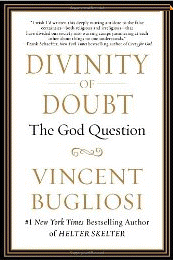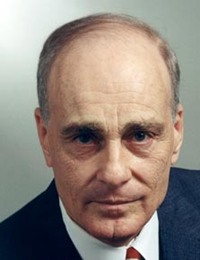- Free MP3 from Jeff Rense Program - Listen
HERE
-
- Comments
- Sisko
5-12-11
-
- Mr. Rense
-
- I throughly enjoyed this interview I have some thoughts
to share I thought his idea about the god who is either all powerful or
allows evil to happen was very good and logical. I think there is a third
factor though that possibly there is a god and it is evil. I think that
there is evidence to support this. I am not saying that there is not some
divine source in the universe, there probably is. I'm saying that humanity
seems to be in the grips of an entity which it calls god and which its
victims empowers it through religion, Just saying.
-
- Also on the jesus thing. Perhaps jesus existed, probably
he did. He may have been a person who became aware or came here aware.
He could have been an inter dimensional, there are some many possibilities
with every persons origins since we don't really understand our origins.
I don't know. But I don't think he was delusional I think what was written
about him is under suspicion and has been to long under the control of
the church.
-
- Sisko
-
-
- Comment
Alton Raines
- 5-13-11
-
- I can't wait to read this book, but Bugliosi's strange
view that in order for God to be "all good" He -must- stop all
evil before it happens or be declared either an evil God or somehow heartless/indifferent
(examples given, the holocaust, 9-11, etc) is simply ridiculous. On the
one hand Bugliosi derides the atheist for childishly concluding that there
can be no God because God would then have to be more complex than that
which He created (and Bugliosi thereby establishes a basic descriptive
of God, ie first cause), but doesn't recognize the childishness of the
argument that a 'good God' would surely stop evil in a universe that is
evidently established on cause and effect. There is high and low, pleasure
and pain, front and back, good and evil... an entire system and stage whereupon
everything takes place. How could there be moral choice without the existence
of evil? Evil serves a purpose, and the Bible even states as much.
-
- Somehow in Bugliosi's research of scripture on the God
issue, he must have missed (or woefully misunderstood) the declarative
statement in Isaiah 45:7, "I form the light, and create darkness:
I make peace, and create evil: I the LORD do all these things." For
human beings to think that only if everything goes smoothly and no one
suffers whatsoever in order for God to be "good" makes absolutely
no sense. God has a purpose and a plan for everything. Not knowing/seeing
the full extent of that plan requires faith (trust) that God knows what
He is doing, and that is the essence of religion. But as long as we are
putting the Judeo-Christian God on trial, let's at least operate within
a framework of logic. To declare that God would obviously be more complex
than his creation establishes that his creation is ill suited to judge
its creator, or as the Apostle Paul stated it, "Who art thou, O' man,
to answer back to God?"
-
- Bugliosi also seemed to skim over the issue of God's
sovereign nature with regard to free will, though this might get more in
depth treatment in his book. But his shock that free will is not indicated
in Scripture yet is pronounced as a given by the vast majority of Christian
churches was a little odd. The sum total of scripture should result in
one recognizing that God is all knowing, and has an established will but
has clearly given his sentient creatures "choice." One could
wrangle over the definition of true "free will" till the cows
come home, but this same God says to man, "Come now, let us reason
together..." (Isaiah 1:18) and such is not the statement of a being
who has closed the door on the fate of all. The Apostle Paul enlightens
on this issue saying plainly that God foreknew all things, and based upon
this foreknowledge God thereby predestined. In other words, whether God
did or did not predestine, the outcome would be exactly the same, but Paul
further explains that God predestined for a purpose, "that he might
show the riches of his mercy" upon those who were foreordained (according
to his foreknowledge) for glory. Not that God arbitrarily made determinations.
This is like knowing your healthy child will reach age 16 and buying them
a car in advance, looking forward to the day he or she would be of age
to drive it, while not purchasing one for another child who is terminally
ill and will die before ever reaching that age.
-
- Bugliosi further attempted to indict God by saying He
"hardened the heart of Pharaoh" in order to justify sending the
10 plagues on Egypt! This was a little preposterous, as though God Almighty
would need to justify anything, but God hardened the heart of Pharaoh according
to foreknowledge. He knew, as He did in the case of Esau, whom He hated
before he was even born and could do any good or evil, that Pharaoh would
stand against him in the end, even when facing the worst. Like Satan, the
condemned and judged of God are self-condemned and judged, willfully choosing
themselves over the will and commandments of a just and Holy God, "who
wishes that all would come to repentance," but knows who will and
who will not, and plans accordingly.
-
- Still, this book will be a fun read because these are
the issues that try men's souls, and Bugliosi will certainly bring to it
an interesting angle being an astute prosecutor. Though I think most of
what he will conclude regarding Christianity will be seriously lacking,
just judging from the interview, it will be a breath of fresh air to see
his agnostic mind at work on the issue of atheism and anti-theism, upon
which he expressed many excellent viewpoints rarely heard expressed in
the current climate of either sloppy, unthinking theistic cheerleading
vs. mind numbingly suppressive, PC-oriented, anti-intellectual anti-theism
and closed minded atheism primarily generated by contemporary scientism.
|
 .....
.....